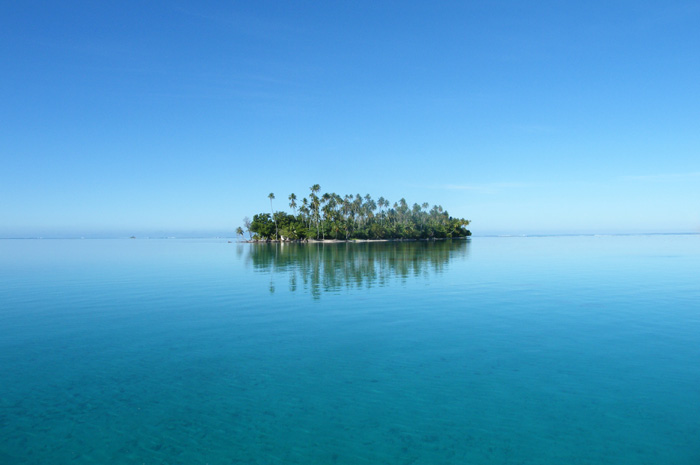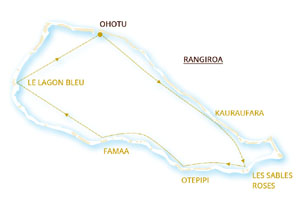Entry and Stay in the Country
Please note that the administrative information provided is for French citizens only. If you are French, a national identity card is sufficient to stay in French Polynesia. However, if you have to transit through the United States, you will need a passport that is valid for at least 6 months after your return date.
Obtaining a Visa
Since French Polynesia is an overseas territory of France, no visa is required to travel there.
Driving in the country
Driving in French Polynesia is on the right side of the road. To drive on the island, a national driver’s license is sufficient.
Mandatory vaccinations
There are no mandatory vaccinations to enter French Polynesia. For more information, you can consult the website of the Institut Pasteur.
Recommended vaccinations
Even though there are no mandatory vaccines to travel to French Polynesia, it is recommended to update the polio vaccine and to get vaccinated against typhoid fever, hepatitis A and hepatitis B.
Health risks and advice
Medical facilities are modern in French Polynesia. Tap water is safe to drink throughout the island. It is recommended to take protective measures against mosquitoes, such as using lotion or similar products.
Medical assistance and hospitals
In case of a medical emergency in French Polynesia, you can contact SOS Médecin at 423 456. For emergencies at the hospital in Papeete, please call 420 101. Other options include Mamao Hospital (46 62 62), Taravao Hospital (57 13 33), Vaiami Specialty Hospital (42 93 70), Cardella Clinic (46 04 00), Paofai Clinic (46 16 16) and Papeete Infirmary (43 41 05).
Banks
Business hours in French Polynesia are generally from 8:00 am to 3:30 pm Monday through Friday. Some businesses may also be open on Saturdays from 8am to 11:30am.
Credit Cards
Credit cards are generally accepted in Tahiti and the Society Islands, and it is easy to withdraw money from ATMs. However, in the other archipelagos, it is advisable to bring enough cash because banks are few and have limited opening hours, and credit cards are rarely accepted. Metropolitan checks are also not accepted in most cases, or else with high commission fees.
Climate
Polynesia has a tropical climate that becomes warmer and more humid between late November and late March, known as the hot season, with temperatures ranging from 28 to 32°C. The best time to travel is from mid-April to mid-October, especially from July to September when the maaramu, the southeast trade wind, blows. The average temperature is then 24°C, except in the Austral Islands where it is cooler. The climate of the Marquesas, closer to the equator, is more humid, with rains coming later. Cyclones are relatively rare compared to the rest of the South Pacific and occur mainly between November and March, with an increasing frequency as one approaches the Tropic of Capricorn. In recent years, disturbances related to the influence of the El Niño current have increased.
Shops
Shopping hours in French Polynesia are generally Monday through Friday from 7:30 a.m. or 8:00 a.m. until 11:30 a.m. or noon, then from 1:30 p.m. or 2:00 p.m. until 5:30 p.m. or 6:00 p.m. Stores are often open until 11:30 am on Saturdays. Note that some large shopping centers outside of Papeete have longer opening hours, from 7:30 a.m. to 8 p.m.
Communications
To call Europe from Polynesia, dial 00 for international, followed by the country code (32 for Belgium, 33 for France, 41 for Switzerland) and the number of your correspondent (without the 0 for 10-digit French numbers). Phone cards specific to Polynesia are required to use the phone booths. To call from Europe to Polynesia, dial the international access code, followed by the Polynesian code (689) and the six-digit number of your correspondent. Local calls are inexpensive and the cost of international calls is decreasing (reduced rates between midnight and 6am).
Time difference
In winter, there is an 11-hour time difference between Paris and Papeete, and 12 hours in summer. Therefore, if the local time in Tahiti is noon, it will be 11pm in Paris in December and midnight in July.
Water
A recommended option is to drink bottled mineral water, available in most places.
Language
The official languages of French Polynesia are French and Polynesian languages, such as Tahitian, spoken by the local population. You may quickly notice that Polynesians roll the “r’s” and that Tahitian is a melodious language, with a marked vocal inflection and where the vowel plays a primary role.
Currency
The currency used in French Polynesia is the CFP (French Pacific Community) franc. Bills of 500, 1,000, 5,000 and 10,000 CFP francs, as well as coins of 1, 2, 5, 10, 20, 50 and 100 CFP francs are in circulation. Money can be exchanged at the airport, major banks, hotels and licensed stores. Cash and traveler’s checks in euros or U.S. dollars can be exchanged without commission.
Voltage
Most of the islands are equipped with electricity, often by generator for the smaller ones. Although some older hotels may have 110 volt outlets, the general standard is 220 volts.




